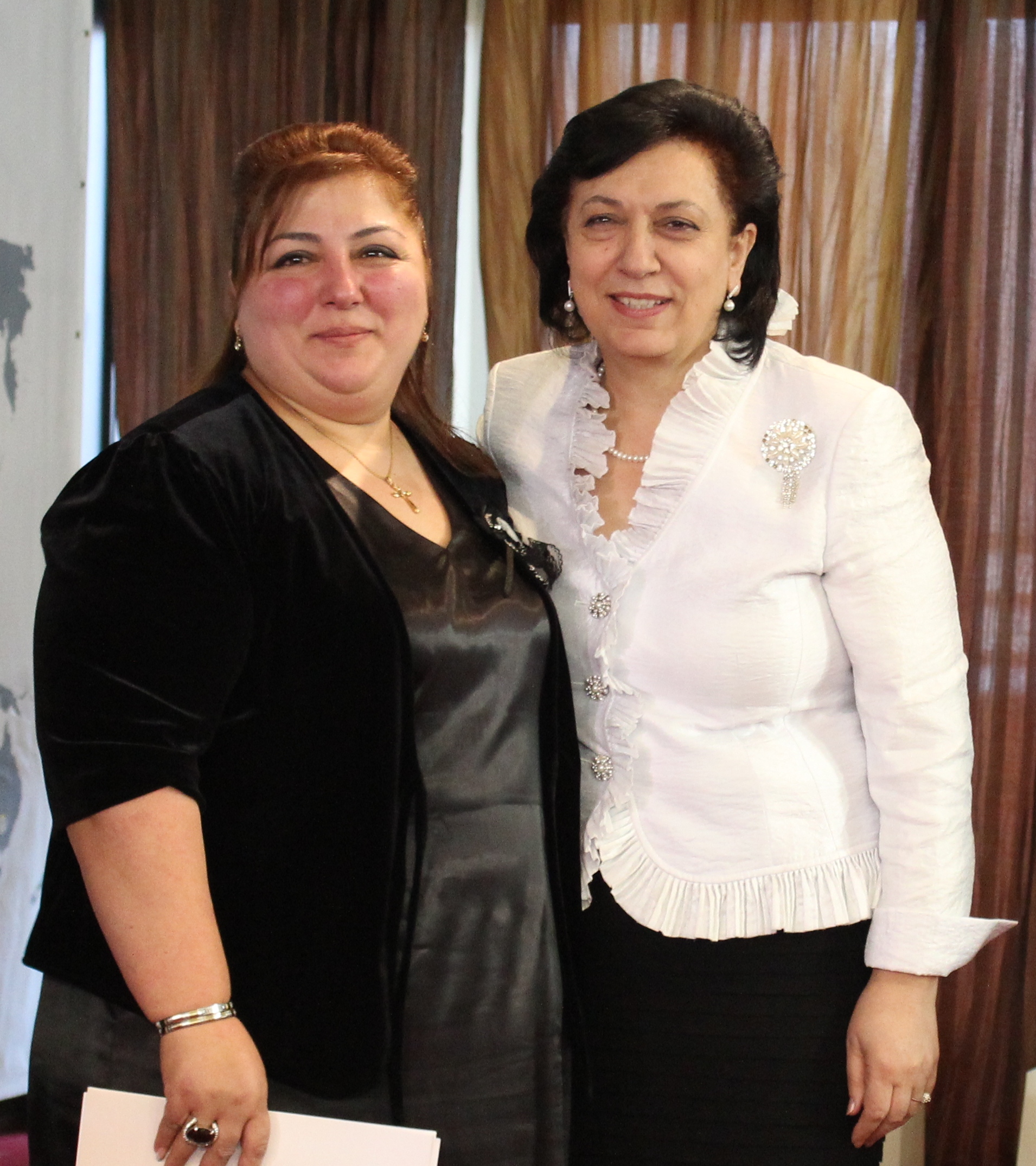Gayane Margaryan: “There came a point where I took back what I had said…”

During the recent pan-Armenian awards “For notable contribution to preservation of the Armenian identity”, director of the one-day Armenian school of Lipeck Gayane Margaryan received the second prize in the Defender of the Native Language category (individual).
On this occasion, “Hayern Aysor”’s correspondent sat down for an interview with Gayane Margaryan.
Gayane Margaryan: Every award that we receive in Armenia is a source of inspiration for us, and the RA Ministry of Diaspora is the one that provides us with that opportunity. The representatives of our community have participated in the contests held by the ministry throughout the years and have received awards. On this occasion, I would like to express gratitude to the ministry for keeping all community organizations in the center of its attention.
Through “Hayern Aysor”, I would like to express my gratitude to Minister of Diaspora Hranush Hakobyan for being able to organize such wonderful events and for encouraging us. I will leave with more energy and enthusiasm and convey my feelings to my staff. I’m certain that this will motivate them.
“Hayern Aysor”: Mrs. Gayane, how long has the school been around?
Gayane Margaryan: The school has been around for the past decade. It was officially opened in 2004. I’m the founding director. Of course, it would be impossible to open the school without the support of the Ministry of Diaspora, the Union of Armenians of Russia, our community leaders and structures. Today, there are 150 students, and this is very motivating for a city like Lipeck.
To compare, I would like to mention that there used to be 27 students in the first year, after which there were 47 students in the second year and later 80 students. In the past two to three years, we have enrolled more than 150 students, and I think this is a major achievement. This is also thanks to our teachers and psychologists who are able to gather the students.
Throughout the past years, the school has undergone quite a lot of hardships. I wouldn’t like to talk about those hardships since I’m in a good mood today, but I hope things will get easier because we already have the support.
“Hayern Aysor”: Mrs. Margaryan, why did you want to open a school?
G. M.: I have been living in the Russian Federation for the past 20 years. I first settled in Moscow, after which I moved to Lipeck. I had just moved to Lipeck when I realized how the children speak Russian so fluently, and I often asked myself, ��?Will there come a day when my children will speak Russian as fluently as those children do?’ But there came a point where I took back what I had said. My children already weren’t speaking Armenian fluently, and that made me very sad. I also noticed that other children weren’t speaking Armenian fluently. I realized that by losing knowledge of the native language, our children would also lose their identity. It was as if there was an awakening to teach (I graduated from the Armenian State University of Pedagogy after Kh. Abovyan) and decided to teach students. I gathered five supporters and we organized the lessons.
For a year, we had problems with procuring textbooks and a place since it was impossible to organize the lessons at home. We addressed the community leaders. At the time, it was simply called an Armenian community, but it was later renamed “Diaspora”, and now it is a territorial division of the Union of Armenians of Russia. Through the community’s leaders, we were able to find a place and receive textbooks. The school received textbooks from the Armenian Revolutionary Federation-Dashnaktsutyun and His Holiness Yezras. I didn’t feel ashamed of anything. I visited Armenia and asked for old Armenian alphabets from schools. Thank God, we currently have a well-established school, and the Ministry of Diaspora is granting us an award.
We are happy and take pride in having been able to create a small Armenia in a foreign country so that we can live as Armenians and preserve the Armenian identity. For instance, we recently directed a play presenting the traditional Armenian wedding ritual. Many didn’t know how to tie a cosband, break the plates, throw the Armenian lavash on their shoulders and other customs. By teaching the students, we decided to show the society that we have had such rituals and traditions that we need to preserve.
Interview by Lusine Abrahamyan




 Արևելահայերեն
Արևելահայերեն Արևմտահայերեն
Արևմտահայերեն Русский
Русский






